The first ever UK Clean Air Day will take place on 15 June 2017. On this day, people will be encouraged to run an event, raise awareness of this issue and to make some simple changes to their lifestyle to begin the process of cleaning up the UK’s filthy air.
The effects of air pollution on children’s health are becoming a matter of increasing concern. Children travelling inside cars are also at risk and Prof Sir David King (the chief scientific adviser to the UK government) recently issued a stark warning to parents.

One SPACE for Gosforth member was so concerned about cars idling by his children’s school that he designed two posters and a colouring picture for the school to use to educate children and parents about this issue. We are privileged to publish his posters and colouring picture, and we hope that other schools and children’s groups might find it useful to encourage drivers to change their behaviour to protect children’s health.
Click on these links to download the posters and the colouring picture. Further resources to campaign against car idling can be found on the UK Clean Air Day website.
SPACE for Gosforth regularly shares our members’ concerns on this issue as we campaign to improve Gosforth’s air quality.

We were very concerned to see levels of nitrogen dioxide visibly rose following Black Friday last year.
High levels of nitrogen dioxide in our community led to Newcastle City Council declaring the South Gosforth Air Quality Management Area (AQMA) in 2008. This is one of Newcastle upon Tyne’s 2 AQMAs – the other one is the City Centre AQMA (which includes parts of Jesmond). Nitrogen dioxide levels in the City Centre AQMA are even higher than in Gosforth and also rose following Black Friday.
Levels in both the City Centre and the South Gosforth AQMAs reduced during 2017, but remain at concerning levels.
Nitrogen dioxide is not the only air pollutant that threatens public health. In 2015, SPACE for Gosforth arranged monitoring of particulates on Gosforth High Street and we were concerned to find that during our monitoring session levels were higher that the WHO recommended limit and at times exceeded the lower EU limit for safe levels.
Our concern about air pollution is shared by a number of hospital trusts (including Great Ormond Street Children’s Hospital) and councils who are supporters of UK Clean Air Day. Other supporters include leading medical organisations and charities including Public Health England, King’s College London, the British Medical Association, the Royal College of Physicians, the BMJ (formerly British Medical Journal), the Royal College of Anaesthetists, the Royal College of Paediatrics and Child Health, the Royal College of Emergency Medicine, the Royal Society of Medicine, the Royal College of General Practitioners, the Royal College of Nursing, the Royal College of Psychiatrists, the British Lung Foundation and the British Heart Foundation.
Clean Air Day is co-ordinated by environmental change charity, Global Action Plan.
Chris Large, partner at Global Action Plan said: “We know that people do want to act on air pollution. But currently, they don’t know how to protect themselves and their children, or how to cut air pollution in their local area. 15th June will be a day of practical action, myth-busting and awareness-raising, so we can all breathe cleaner air.”
Top tips to cut air pollution:
- switch off your car engine whenever you can,
- leave the car at home if you really don’t need to use it,
- walk or cycle with your children to school,
- share information on cutting air pollution with others.
Click here to download the Clean Air Day leaflet.

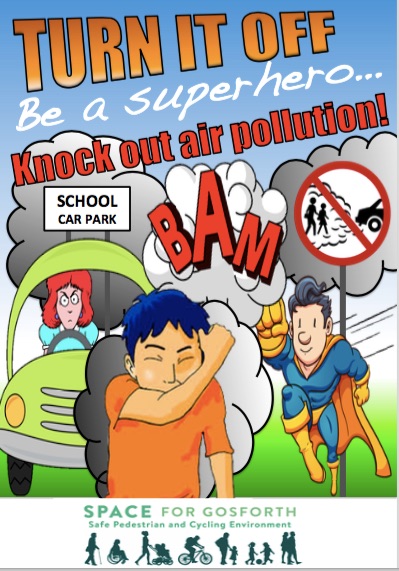

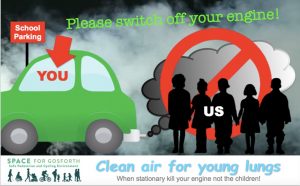
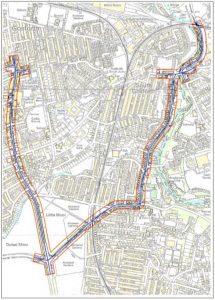

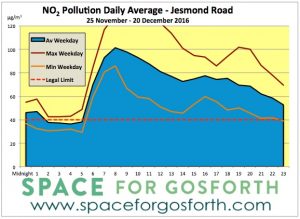
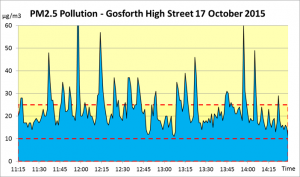
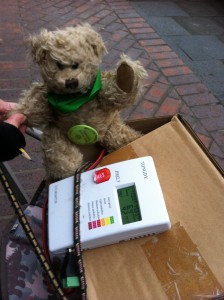
It’s also illegal to leave your engine running when parked, and doubly so if you are also checking your mobile phone.
This is the link to the Highway code: http://www.highwaycodeuk.co.uk/control-of-the-vehicle.html
Rule 123 states: “You MUST NOT leave a parked vehicle unattended with the engine running or leave a vehicle engine running unnecessarily while that vehicle is stationary on a public road. Generally, if the vehicle is stationary and is likely to remain so for more than a couple of minutes, you should apply the parking brake and switch off the engine to reduce emissions and noise pollution. However it is permissible to leave the engine running if the vehicle is stationary in traffic or for diagnosing faults.”
See also: The Road Traffic (Vehicle Emissions) (Fixed Penalty) (England) Regulations 2002
https://www.legislation.gov.uk/ukdsi/2002/0110423887
These are the rules on using a mobile phone:
https://www.gov.uk/using-mobile-phones-when-driving-the-law
You can use a phone only when “safely parked” which means handbrake applied and engine and lights switched off (Highway Code rule 239).
While on that topic, here’s some advice from RoSPA about distraction if using hands-free mobile phones:
https://www.rospa.com/road-safety/advice/drivers/distraction/